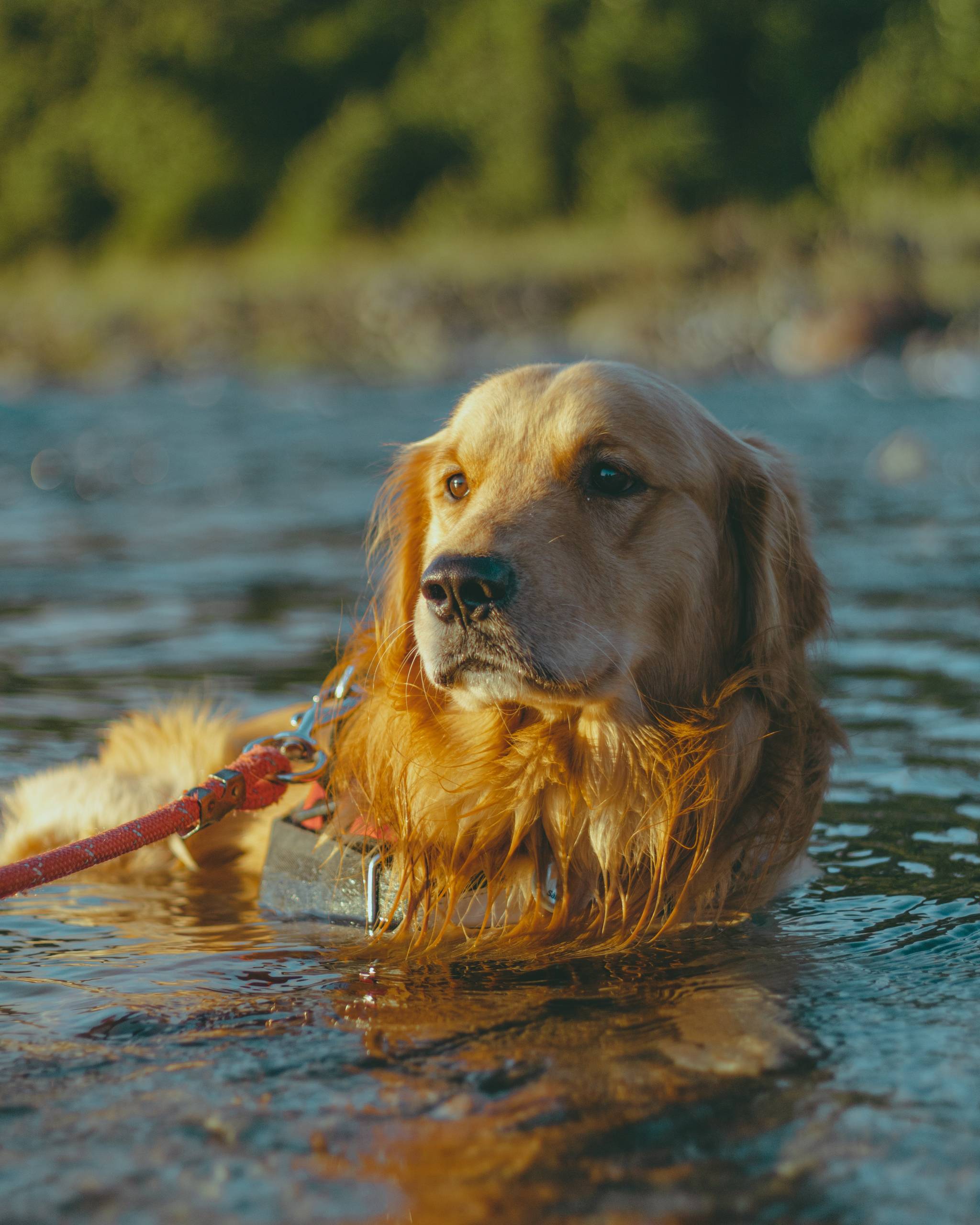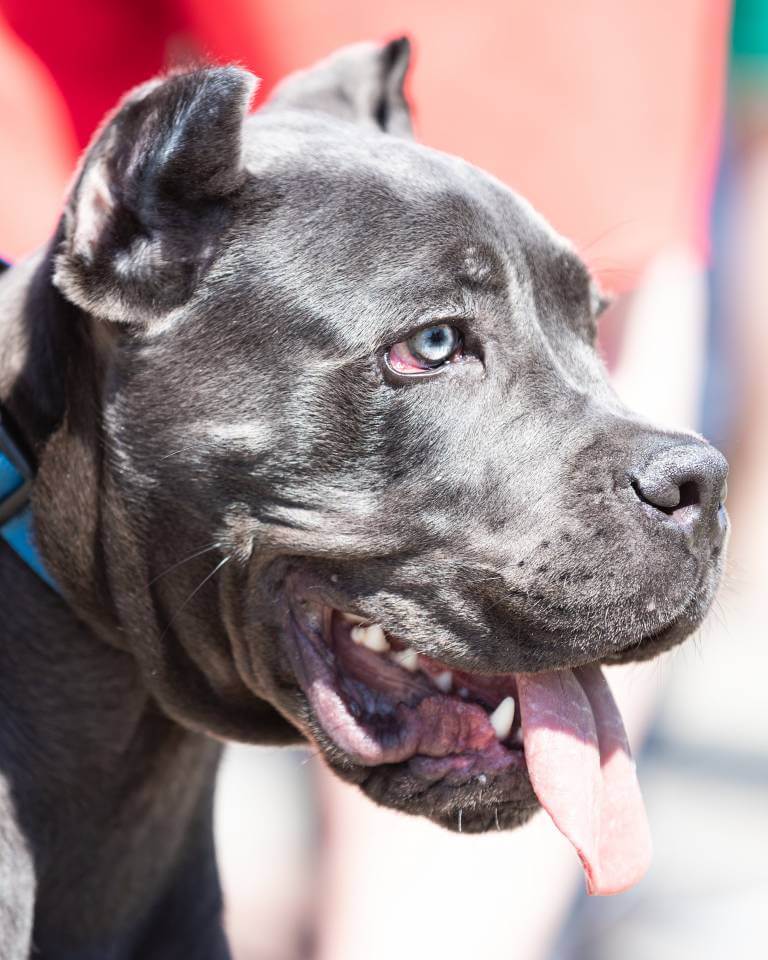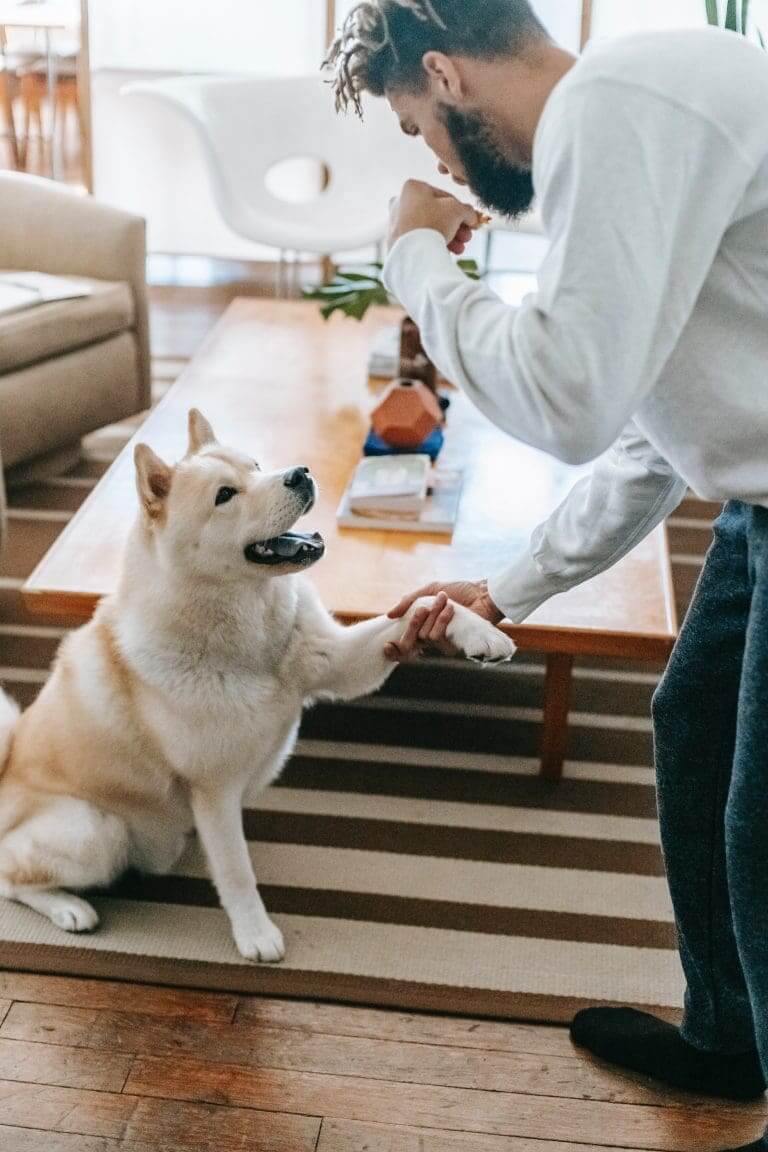What Is Morkie Dog?
Post Date:
December 10, 2024
(Date Last Modified: November 13, 2025)
A Morkie combines traits of the Maltese and the Yorkshire Terrier and is commonly kept as a companion dog with a mix of features from both parents.
What Is a Morkie?
A Morkie is a hybrid dog produced by crossing the Maltese with the Yorkshire Terrier, resulting in what is often called a designer or companion cross between two established toy breeds. The cross is not a standardized purebred but rather a mixed-breed pairing where offspring can vary widely in appearance, coat, and temperamental emphasis inherited from either parent.
Adult Morkies commonly weigh between 4 and 8 pounds (1.8–3.6 kg), depending on parent size and generation[1]. They typically stand about 6 to 9 inches (15–23 cm) at the shoulder, which places them firmly in the toy-size category for living-space and handling expectations[2]. Because both parent breeds are small, litter sizes for these toy crosses are often modest, frequently averaging 1 to 3 puppies per litter in backyard and small-scale breeding situations[3].
Common alternative names and informal variations include blends such as “Malti-York” or “Maltese-Yorkie cross,” and some sellers use a range of portmanteau names; the single-name “Morkie” is the most widely recognized shorthand among owners and small-breed enthusiasts. Many people choose designer hybrids like the Morkie for specific lifestyle reasons: compact body size, the potential for a low-shedding coat, and the companion-oriented temperaments associated with the parent breeds. Owners commonly report budgeting roughly 1 to 2 hours per week for routine grooming and basic coat maintenance when keeping a Morkie in trimmed or natural coats[4].
Coat upkeep expectations vary, but routine brushing 3 to 5 times per week helps prevent tangles and matting in longer-haired individuals and supports skin health for shorter-trimmed pets[5]. Prospective owners should expect individual variability: some Morkies will skew more toward Maltese-like features, while others take after the Yorkshire Terrier in coat texture and face shape, and that variability is normal for first-generation and later-generation crosses alike.
| Breed | Typical adult weight (lb) | Typical height at shoulder (in) |
|---|---|---|
| Maltese | 4–7 | 7–9 |
| Yorkshire Terrier | 4–7 | 7–8 |
| Morkie (typical) | 4–8 | 6–9 |
Breed History and Development
The Morkie emerged as part of a broader trend toward designer crosses in the late 20th century when breeders and pet owners sought smaller companion dogs with mixed parent traits[6]. Early crossings were typically informal and done by small-scale breeders or hobbyists rather than established breed clubs, and the name “Morkie” became popular in marketing and owner communities during the 1990s and early 2000s as demand for toy crosses rose[2]. Breeding goals commonly focused on producing compact, friendly companion animals and, in some cases, attempting to combine a low-shedding coat with the Yorkie’s spirited personality or the Maltese’s traditionally affectionate demeanor; these goals guided selective pairings and backcrossing in the first few generations[3].
Popularity trends have fluctuated: interest typically increases in cycles tied to celebrity ownership, social media exposure, and the visibility of small-breed companions in urban lifestyles; breeders and shelters reported notable upticks in inquiries during the 2000s and again in the 2010s as designer crosses entered mainstream awareness[2]. The influence of show-breeding is limited for Morkies because both parent breeds are distinct, registry-focused breeds and the cross itself is not recognized by major kennel clubs; instead, most Morkie breeding prioritizes companion traits and conformations suited to pet households rather than adherence to show standards[4].
Appearance and Size
Morkies display notable variability in appearance because first-generation crosses (F1) inherit a roughly 50/50 genetic mix from Maltese and Yorkshire Terrier parents, while later-generation crosses and backcrosses shift traits depending on breeding choices[7]. Typical adult weight for a Morkie ranges from about 4 to 8 pounds (1.8–3.6 kg), and shoulder height usually falls between 6 and 9 inches (15–23 cm), with smaller or larger individuals occurring when parents are outside these ranges[1]. Growth patterns often show rapid early development in the first 4 to 6 months followed by slower filling-out through 9 to 12 months for most toy crosses[3].
Coat types vary from silky, long single coats that resemble the Maltese to fine, steelier hair more like the Yorkshire Terrier; many Morkies have intermediate textures that require moderate to frequent care[8]. Coat colors commonly include black-and-tan patterns, parti-color mixes, sable shades, and solid white, and shedding is usually light to moderate depending on coat type and grooming regimen[5]. Distinguishing facial features can include the Maltese’s rounder skull and dark eyes or the Yorkie’s shorter muzzle and erect ear carriage; which parent a puppy most closely resembles is often clear by 3 to 6 months of age[2].
Temperament and Behavior
Morkies are frequently described as affectionate and alert, combining the Maltese tendency to bond closely with family and the Yorkshire Terrier’s watchful, energetic streak; many owners report a sociable, playful disposition with a readiness to interact in household contexts[9]. Interaction with children and other pets depends on early socialization: supervised play and positive exposure during the 3- to 16-week socialization window reduce the risk of fear-based reactivity later in life[4]. Morkies may be wary of strangers and quick to vocalize; barking is a common behavioral tendency and can increase if a dog is left alone for long periods or lacks sufficient mental stimulation[5].
Separation anxiety is a documented risk in small, strongly bonded companion breeds; signs such as persistent whining, destructive chewing, or house-soiling tend to emerge when dogs are consistently left alone for more than a few hours per day and without staged desensitization training[7]. Early, reward-based training and gradual alone-time practice—starting with minutes and building to hours—help many Morkies adapt to household routines with reduced anxiety-related behaviors[9].
Health Profile and Lifespan
Morkies typically have lifespans in the range of about 12 to 15 years, reflecting the generally longer-lived nature of small toy breeds when provided with routine preventive care[10]. Common health concerns include dental disease, patellar luxation, and hypoglycemia in young puppies; each of these conditions is reported with higher frequency in small-breed populations and warrants proactive monitoring by owners and veterinarians[3]. Dental issues can appear as early as 1 to 3 years of age without regular home care and professional cleanings, so daily or near-daily tooth brushing and annual dental checks are recommended for prevention[5].
Genetic screening and pre-breeding veterinary checks are advised for reproductive stock; tests commonly recommended include patellar evaluation, cardiac auscultation, and, when appropriate, breed-specific tests advised by veterinary specialists or breed clubs[6]. Preventive care schedules typically follow vaccination and parasite control protocols established by veterinary associations, with core vaccines administered on schedules appropriate to local risk and a tailored wellness plan reviewed at least annually[4].
Grooming and Coat Care
Coat management for a Morkie depends on whether the owner keeps the coat long or in a shorter “puppy cut”; regular brushing prevents mats and distributes skin oils, with most longer coats benefiting from daily brushing and trimmed coats requiring at least 2 to 3 short brushing sessions per week[5]. Bathing frequency for companion-trimmed Morkies is commonly every 3 to 6 weeks depending on activity level and skin condition, with more frequent bathing sometimes needed for skin allergies or contact with irritants[1]. Professional grooming sessions are typically scheduled every 4 to 8 weeks for owners who prefer a consistent trim and sanitary clipping; owners who groom at home should invest in a slicker brush, comb, and suitable clippers or scissors and expect to budget time for maintenance[4].
Dental care is especially important in small breeds: daily toothbrushing is ideal and professional dental evaluation or cleaning is commonly recommended at least annually or as directed by a veterinarian based on tartar accumulation and periodontal disease risk[5]. Ear checks for debris and mild ear-cleaning with veterinarian-approved solutions should take place weekly to monthly depending on ear carriage and activity, while nail trims are usually needed every 3 to 6 weeks to avoid overgrowth and associated gait issues[1].
Exercise, Training, and Mental Stimulation
Morkies generally meet exercise needs with short walks and play; most adults do well with two 10- to 20-minute walks or equivalent play sessions per day combined with indoor enrichment, with puppies requiring shorter, more frequent bursts of activity to prevent overexertion[2]. Training benefits from positive reinforcement, using small, palatable rewards and brief sessions of 5 to 10 minutes several times daily to build skills without fatiguing the dog; consistency and early social exposure reduce fear-based responses to new people and environments[4].
Mental enrichment lowers the risk of problem behaviors: puzzle feeders, short training games, and supervised scent or hide-and-seek activities for 10 to 15 minutes daily provide cognitive stimulation that complements physical exercise and helps curb vocalizing or destructive chewing caused by boredom[9].
Nutrition and Weight Management
Feeding a Morkie requires attention to calorie density and portion control because small breeds have higher metabolic rates and a small stomach capacity; adult calorie needs commonly fall between about 150 and 300 kcal per day depending on activity, age, and neuter status[5]. Puppies need more frequent feeding—usually three to four small meals per day until about 4 to 6 months of age—then transition to two meals per day for adults to maintain steady glucose levels and reduce begging or scavenging behaviors[3].
Fluid requirements can be estimated clinically at roughly 50 to 60 mL/kg/day for maintenance in healthy adults, and any marked change in drinking or urination should prompt veterinary evaluation[3]. Treats should make up no more than about 10% of daily caloric intake to avoid weight gain, and owners should measure portions carefully because a single tablespoon of a typical kibble can contain 15 to 20 kcal depending on formulation[5]. When considering supplements, consult a veterinarian before use; routine omega-3 supplementation or joint-support products may be useful in some cases but are not universally recommended without individual assessment[4].
Suitability and Lifestyle Fit
Morkies are often well suited to apartment and urban living because of their small size and modest exercise needs, but they do best with owners who can provide daily interaction and supervised activity; households where someone is home for much of the day or where staged alone-time training is possible are a good match[2]. Families with older, respectful children, singles, and seniors frequently enjoy Morkies as companions, while households with very young children should plan for supervision because tiny dogs can be injured by rough handling or accidental drops[9].
Allergy considerations: no dog is truly hypoallergenic, but some owners find that lower-shedding coats reduce airborne dander; prospective owners with allergies should spend time with representative adult dogs before committing and maintain rigorous cleaning and grooming practices if proceeding[1].
Finding, Buying, and Adoption Considerations
When sourcing a Morkie, prioritize breeders who provide health clearances for both parents and allow independent veterinary checks; good questions include requests for documentation of patellar evaluations, cardiac checks, and details on puppy socialization practices[6]. Adoption from rescues or small-breed-focused shelters is a viable alternative; many rescues list mixed small breeds and offer temperamental histories and foster-based assessments that can reduce uncertainty compared with buying a young puppy[10].
Typical purchase prices for designer crosses vary widely by region and breeder practices, and prospective owners should budget for initial wellness checks, spay/neuter, microchipping, vaccinations, routine preventive care, and likely grooming costs; one-time acquisition can be a minor portion of the first-year cost, with annual routine care and unexpected medical expenses representing the larger ongoing financial commitment[2]. Red flags when evaluating sellers include refusal to provide veterinary references, pressure to complete a sale without time for questions, or multiple litters available from the same household suggesting commercial-scale operations without documented health programs[6].
Legal, Ethical, and Welfare Issues
Regulation of designer breeding varies by jurisdiction; many municipalities require licensing and microchipping for companion animals, and owners should check local ordinances for specific requirements related to registration, vaccination, and leash laws[4]. Ethical concerns around designer breeds include selection for cosmetic traits at the expense of health and the potential for increased demand to fuel irresponsible breeding; supporting reputable breeders who perform health testing and prioritize welfare or adopting from responsible rescues helps mitigate these risks[6].
Buyers can reduce welfare risks by asking for written contracts that include health guarantees, return clauses, and clear ownership transfer terms, and by avoiding transactions that involve shipping puppies without verified veterinary checks and clear health documentation[10].






